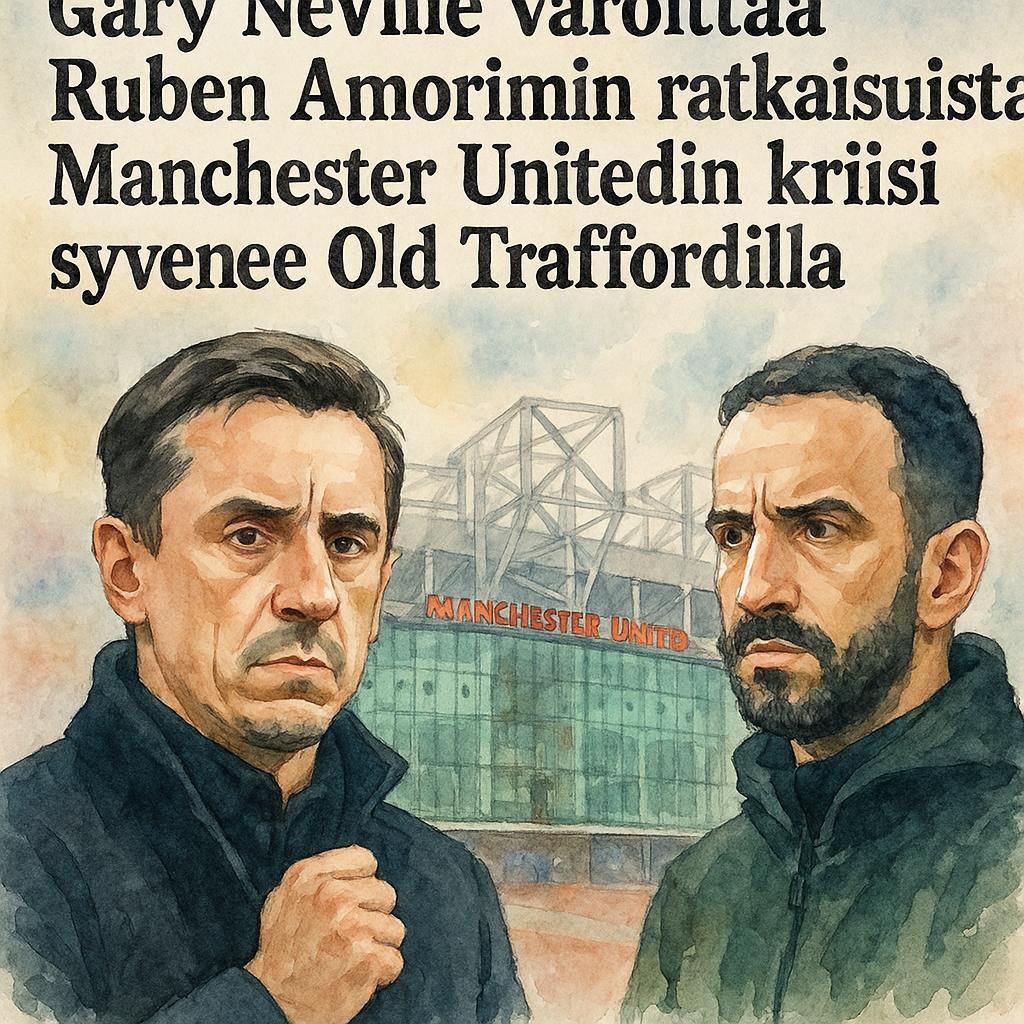Gary Neville varoittaa Ruben Amorimin ratkaisuista Manchester Unitedin kriisi syvenee Old Traffordilla
For decades, the name Manchester United carried a unique aura, reverberating across stadiums with the weight of dominance and tradition. Once a symbol of fear and pride, today that aura feels fragmented, diminished, and uncertain. The thunder has quieted into a rumble. Watching United now is less about glory and more about the unraveling of a football empire that once seemed untouchable.
Gary Neville Speaks Out
Few figures command respect when they speak about United quite like Gary Neville. A legend forged from the club’s iconic “Class of ’92,” he has transitioned from player to outspoken pundit, known for delivering unsparing truths. And this week, his sharp words were directed at Ruben Amorim, the ambitious Portuguese coach expected to lead United into a brighter future.
Neville dismissed some of Amorim’s tactical decisions with blunt force, calling them “simply stupid.” It was not just criticism; it was a warning shot at a club drifting into dangerous waters.
A Grim Night in West London
Saturday night at Brentford was supposed to be routine — a chance to steady the ship. But instead of restoration, United were dismantled. The 3–1 defeat wasn’t just another loss; it was chaos made visible. Confusion spread across the pitch like a fog, and Amorim’s decision to persist with Mason Mount as a wing-back raised eyebrows all over again. What might have begun as a bold idea now looks increasingly like stubborn self-sabotage.
Neville’s Stark Warning
Neville’s analysis wasn’t just about a single lineup choice. It was about the deeper sickness within United’s systems. He pointed to:
- A fragile and disorganized defense
- Excessive tinkering with formations
- A squad drowning in rotation and short on trust
To Neville, Old Trafford is not a place where uncertainty can hide. Its spotlight is merciless, exposing weakness until there is no room left for excuses.
The Tragic Hero Feel
Amorim has begun to resemble a tragic figure — a man of bright ideas but weighed down by an inability to adapt. His persistence threatens to eclipse his talent. The body language on the field tells its own tale: Rashford’s heavy sighs, Casemiro’s faltering form, young players adrift in confusion. This is not the look of warriors rallying under a visionary leader; it is the image of a fractured unit unable to find its rhythm.
What Comes Next?
Despite his harsh critique, Neville stopped short of calling for Amorim’s removal. He understands the brutal churn of football management, where patience is scarce and pressure mounts from both boardrooms and terraces. Still, even he cannot ignore that time is running short. United, as both a football club and global corporate giant, operates under one supreme command: deliver results.
- If Amorim recalibrates, he could become the architect of United’s long-awaited revival.
- If he doesn’t, he risks joining the growing list of managers broken by the job.
Echoes at Old Trafford
When the roar of matchday fades and the stadium falls silent, what lingers is an echo — of greatness once certain, now fragile. Neville’s critique contributes to that echo, urging change, urging clarity. For Amorim, the road ahead is thin and treacherous. Each game is no longer just a contest; it is a verdict on his future.
The looming question is this: can he harness the storm before it swallows him, or will his era at United be remembered only as another failed chapter in the shadow of its past?
One way or another, Old Trafford is watching closely. The crossroads has come again, and the next step may define both Amorim’s career and the fate of a restless giant.
